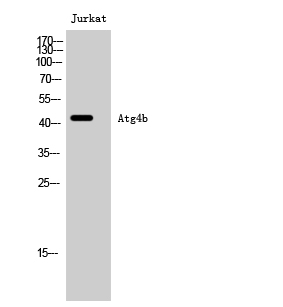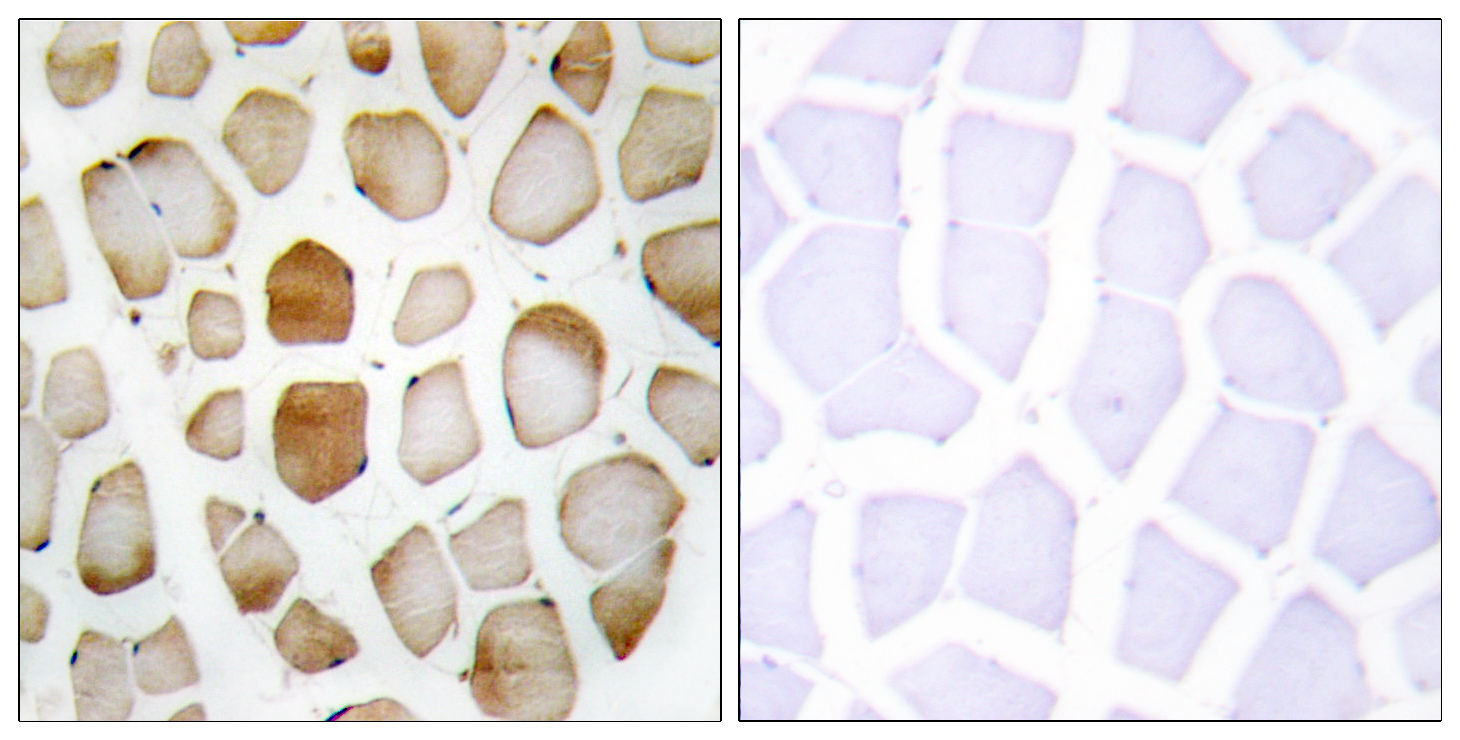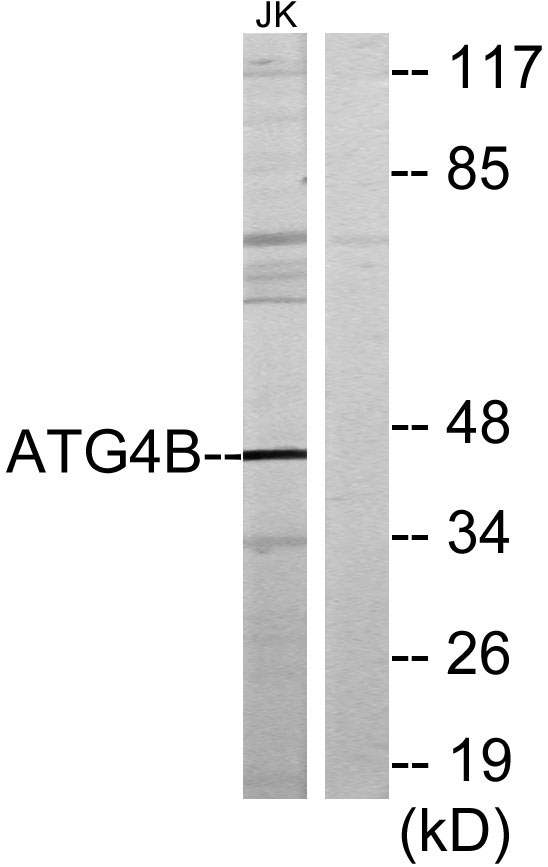- 靶点:
- ATG4b
- 简介:
- >>Autophagy - other;>>Autophagy - animal
- 基因名称:
- ATG4B
- 蛋白名称:
- Cysteine protease ATG4B
- Human Gene Id:
- 23192
- Human Swiss Prot No:
- Q9Y4P1
- Mouse Gene Id:
- 66615
- Mouse Swiss Prot No:
- Q8BGE6
- 免疫原:
- The antiserum was produced against synthesized peptide derived from human ATG4B. AA range:71-120
- 特异性:
- Atg4b Polyclonal Antibody detects endogenous levels of Atg4b protein.
- 组成:
- Liquid in PBS containing 50% glycerol, 0.5% BSA and 0.02% sodium azide.
- 来源:
- Polyclonal, Rabbit,IgG
- 稀释:
- WB 1:500 - 1:2000. IHC 1:100 - 1:300. ELISA: 1:20000.. IF 1:50-200
- 纯化工艺:
- The antibody was affinity-purified from rabbit antiserum by affinity-chromatography using epitope-specific immunogen.
- 浓度:
- 1 mg/ml
- 储存:
- -15°C to -25°C/1 year(Do not lower than -25°C)
- 其他名称:
- ATG4B;APG4B;AUTL1;KIAA0943;Cysteine protease ATG4B;AUT-like 1 cysteine endopeptidase;Autophagin-1;Autophagy-related cysteine endopeptidase 1;Autophagy-related protein 4 homolog B;hAPG4B
- 实测条带:
- 44kD
- 背景:
- Autophagy is the process by which endogenous proteins and damaged organelles are destroyed intracellularly. Autophagy is postulated to be essential for cell homeostasis and cell remodeling during differentiation, metamorphosis, non-apoptotic cell death, and aging. Reduced levels of autophagy have been described in some malignant tumors, and a role for autophagy in controlling the unregulated cell growth linked to cancer has been proposed. This gene encodes a member of the autophagin protein family. The encoded protein is also designated as a member of the C-54 family of cysteine proteases. Alternate transcriptional splice variants, encoding different isoforms, have been characterized. [provided by RefSeq, Jul 2008],
- 功能:
- enzyme regulation:Inhibited by N-ethylmaleimide.,function:Cysteine protease required for autophagy, which cleaves the C-terminal part of either MAP1LC3, GABARAPL2 or GABARAP, allowing the liberation of form I. A subpopulation of form I is subsequently converted to a smaller form (form II). Form II, with a revealed C-terminal glycine, is considered to be the phosphatidylethanolamine (PE)-conjugated form, and has the capacity for the binding to autophagosomes.,similarity:Belongs to the peptidase C54 family.,tissue specificity:Mainly expressed in the skeletal muscle, followed by brain, heart, liver and pancreas.,
- 细胞定位:
- Cytoplasm . Cytoplasm, cytosol . Cytoplasmic vesicle, autophagosome . Endoplasmic reticulum . Mitochondrion . Mainly localizes to the cytoplasm, including cytosol (PubMed:29165041). A samll potion localizes to mitochondria; phosphorylation at Ser-34 promotes localization to mitochondria (PubMed:29165041). .
- 组织表达:
- Brain,Embryo,Endometrium,Epithelium,Hippocampus,Liver,Placenta,Test
Methylation-induced silencing of miR-34a enhances chemoresistance by directly upregulating ATG4B-induced autophagy through AMPK/mTOR pathway in prostate cancer. ONCOLOGY REPORTS 2015 Oct 16 WB Human PC-3 cell, DU145 cell
货号:YT0394
- June 19-2018
- WESTERN IMMUNOBLOTTING PROTOCOL
- June 19-2018
- IMMUNOHISTOCHEMISTRY-PARAFFIN PROTOCOL
- June 19-2018
- IMMUNOFLUORESCENCE PROTOCOL
- September 08-2020
- FLOW-CYTOMEYRT-PROTOCOL
- May 20-2022
- Cell-Based ELISA│解您多样本WB检测之困扰
- July 13-2018
- CELL-BASED-ELISA-PROTOCOL-FOR-ACETYL-PROTEIN
- July 13-2018
- CELL-BASED-ELISA-PROTOCOL-FOR-PHOSPHO-PROTEIN
- July 13-2018
- Antibody-FAQs
- 产品图片

- Western Blot analysis of Jurkat cells using Atg4b Polyclonal Antibody

- Immunohistochemistry analysis of paraffin-embedded human skeletal muscle tissue, using ATG4B Antibody. The picture on the right is blocked with the synthesized peptide.

- Western blot analysis of lysates from Jurkat cells, using ATG4B Antibody. The lane on the right is blocked with the synthesized peptide.



